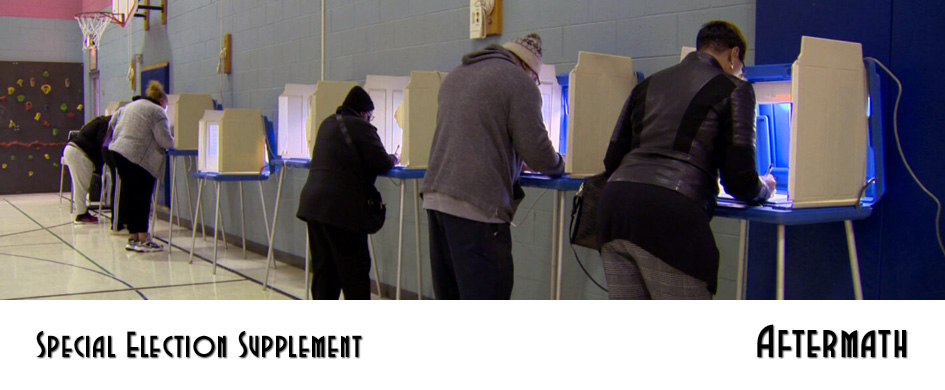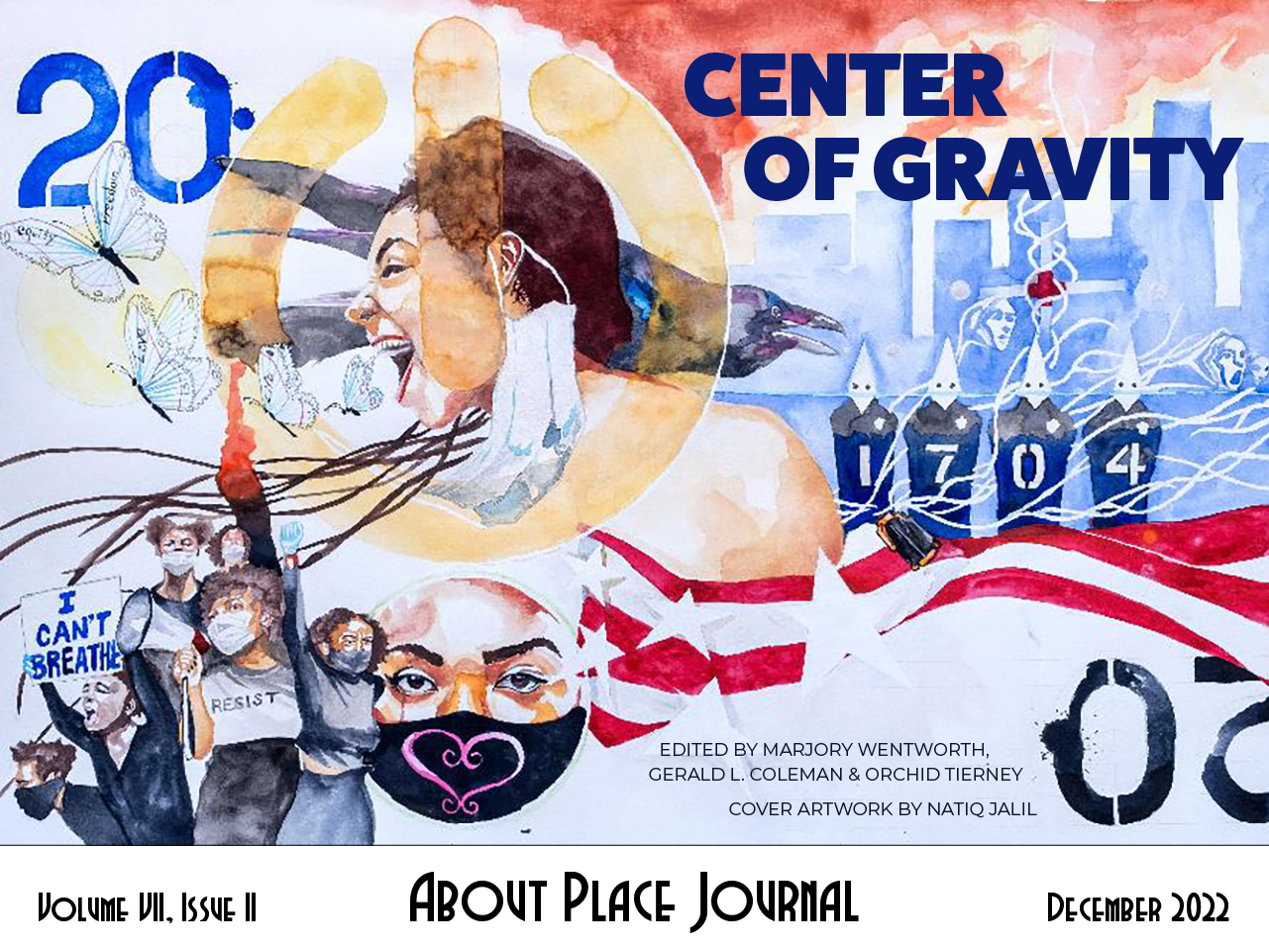This Election Day you didn’t vote in person. Maybe you voted early, sent in an absentee ballot. Since you died an unlatched door swings back and forth, slamming against the siding, pausing every so often in the door jamb, the hardware clicking the moment of quiet in place before it flings itself into open air again, the hinges yawning or squealing, depending on the wind speed. I suppose I’m distracted by the paradigm of the liminal, the threshold between this world and the next, if there is a next. I can’t help it—I keep thinking you checked out, which is unfair. Dying isn’t checking out of a hotel and watching the news from the other side. It’s me, Jerry. How many times have I felt tired of the work of living, the hurricane waves washing away homes and hope? I’m tired of the heavenly king we both blame for the attacks on women, his tantrums, his scepter stirring up cyclones and hate, tired of his minions trying to overshadow democracy, tired of his absence of light. I’m called back to Dickinson: “They are religious, except me, and address an eclipse, every morning, whom they call their ‘Father.’” I didn’t see the total lunar eclipse this Election Day at 5:16 Eastern Time. I’m not an early riser and besides it was cloudy, nothing to see there, so I slept through it, albeit with the usual night terrors, knowing haptics would notify me of magnificent photos and videos posted and reposted. The New York Times headline announced: “Those who woke up early to head to the polls got a shot at seeing the moon darken as it fell into Earth’s shadow.”
Fell into Earth’s shadow. You might say that, like the moon, you fell into the planet’s darkness as the nation cast its votes. You were fond of saying “you might say,” a kind of subjunctive invitation, a little nudge to the lucky one who was your conversation partner, a collaborative wink, and then you’d cluck your tongue and look up at the blue sky you loved, maybe sing a few notes. Were you alive to write it, what would your poem make of the catastrophes on the ballot and the blood moon of 2022? I ask: why bother to say it better than the headline’s little found poem? All the predictions of a red wave were bullshit, I can hear you say cheerfully, as I write it myself, a kind of synchrony between us. I pause to listen to how you’d enunciate bullshit, the S drawn out contempt, the T a sharp blade. A red wave deferred, even a ripple, still threatens violence, especially if we win next week. The bloodstains of history don’t wash out. The pundits moralize among themselves for show, “we shouldn’t prognosticate,” they say as they do.
You’d hate their dishonesty, and your indignation pushes my pen along, the beautiful blue ink. Blue is my favorite color. In a 2012 interview, you called blue your “second favorite color…the color of life in Jewish culture and mythology. Mary, mother of Jesus, is represented by the color blue. Miriam and Mary have their root in the word bitterness, or salty, which relates to the sea, the sea is also blue, as we envision it.” You take my arm as you did in Lewisburg on afternoon walks, etymology and history our companions. You teach me a few Yiddish words, fill in the gaps in my half-Jewish education, humming a little to our footsteps, keeping time and keeping track, and we meander back and forth between memory and the text. I read on to keep you here, talking to me: “I have an endless—maybe incredible—devotion to what has happened, good and bad. It is stubbornness certainly. It is also a compulsion stemming from an absolute longing for truth and justice. I guess that is what keeps memory alive.” I say “a 2012 interview” to match your devotion to the past with my own perfectionist accuracy. I say 2012 because ten years ago you foretold our future, warning “be careful of Republicans, who will do or say anything for the sake of a vote…the biggest fool east of the Hudson is Trump…his buildings are ugly and disfigure the skyline…his hair is ridiculous and…his brain is smaller than that of a garter snake.”
I remember the day in 1994, around two in afternoon, sitting with you at a bistro table on Main Street. You told me about “the evil Mellons” in Pittsburgh and hearing Father Coughlin on the radio when you were a boy, and the militia he incited to harass Jews on the streets. “Yeah, my dad tells a similar story,” I said, another bedtime story about being a Jew. This was before we asked for the WiFi password as soon as we’re handed a menu. Neither of us knew then that later iterations of the computer would be the 21st Century’s radio, receiving and disseminating the Big Lies and mobilizing the Nazi descendants of your boyhood to attempt a coup. You poked fun at my new laptop. “Look, Jerry,” I murmured, and I pointed in awe to thousands of little crescent moon shadows the annular eclipse cast on the sidewalk, on our faded blue jeans, and on our arms warmed by the May sun.
Works Cited
Hall. Shanon. “A Total Lunar Eclipse in Early Tuesday Skies: Those who woke up early to head to the polls on Tuesday, got a shot at seeing the moon darken as it fell into Earth’s shadow.” New York Times. Nov. 7, 2022 Updated Nov. 10, 2022. https://www.nytimes.com/2022/11/07/science/lunar-eclipse-when-where.html. Accessed November 8, 2022.
Higginson, Thomas Wentworth. “Emily Dickinson’s Letters.” The Atlantic. October 1891 Issue. https://www.theatlantic.com/magazine/archive/1891/10/emily-dickinsons-letters/306524/. Accessed November 11, 2022.
Stern, Gerald. “I Knew Some Of Them, But They All Knew Me.” Interview with Amy Wright. Zone 3. Fall 2012. https://www.zone3press.com/entry/view/an-interview-with-gerald-stern. Accessed November 11, 2022.


